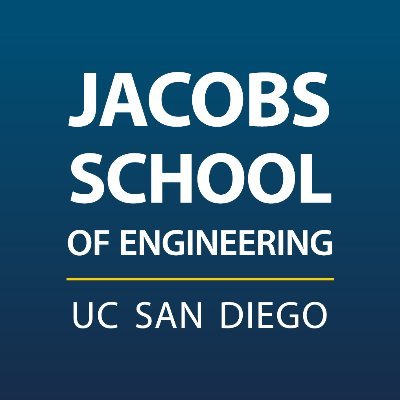News


October 13, 2008
NIH Awards $38 Million Grant Renewal to UC San Diego For Lipid Mapping Project
Shankar Subramaniam, professor and chair of the bioengineering department, is part of a $38M NIH renewal grant for “LIPID MAPS,” a national consortium studying the structure and function of lipids. Full Story

October 7, 2008
Bioengineers Fill Holes in Science of Cellular Self-Organization
Bioengineers and physicists at UC San Diego provide new insights into how cell populations order themselves biomechanically. Full Story

September 22, 2008
Generation Innovation: UC San Diego Researchers Win $3M in NIH New Innovator Awards
At 30, Karen Christman, an assistant bioengineering professor at the UC San Diego Jacobs School of Engineering, plans to help fuel the growing field of tissue engineering. With a new $1.5 million New Innovator Award grant from the National Institutes of Health (NIH), Christman will be able to do just that. Full Story

August 25, 2008
UC San Diego GreenLight Project to Improve Energy Efficiency of Computing
The information technology industry consumes as much energy and has roughly the same carbon “footprint” as the airline industry. Now scientists and engineers at the University of California, San Diego are building an instrument to test the energy efficiency of computing systems under real-world conditions—with the ultimate goal of getting computer designers and users in the scientific community to re-think the way they do their jobs. Full Story

August 13, 2008
Bioengineer Shyni Varghese Awarded $2.3M Grant for Stem Cell Research
Bioengineering Professor Shyni Varghese is one of five UC San Diego researchers and physicians awarded New Faculty grants from the California Institute for Regenerative Medicine (CIRM). The new awards, announced today, add $11.5 million to the more than $20 million in funding that researchers at UC San Diego have received from CIRM. Full Story

July 25, 2008
Von Liebig Center Hosts First Annual Technology Showcase
Technologies developed at UC San Diego landed in the spotlight on July 16, 2008 at an entrepreneurship technology showcase organized by UC San Diego’s von Liebig Center. Full Story

July 22, 2008
Bioengineering Undergrad Explores Other Side of World
A bioengineering undergraduate documents her experiences as a summer researcher in New Zealand. Full Story


